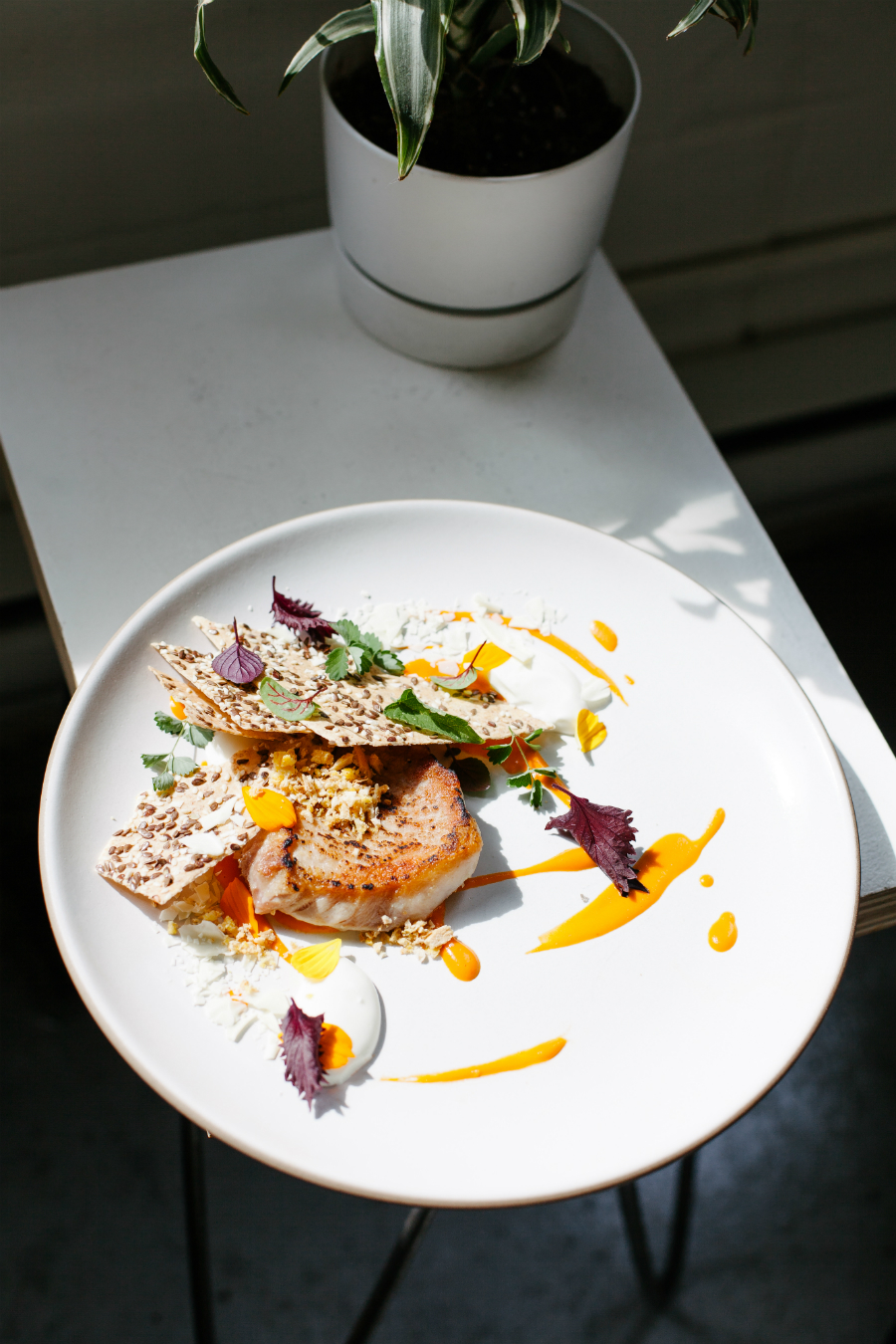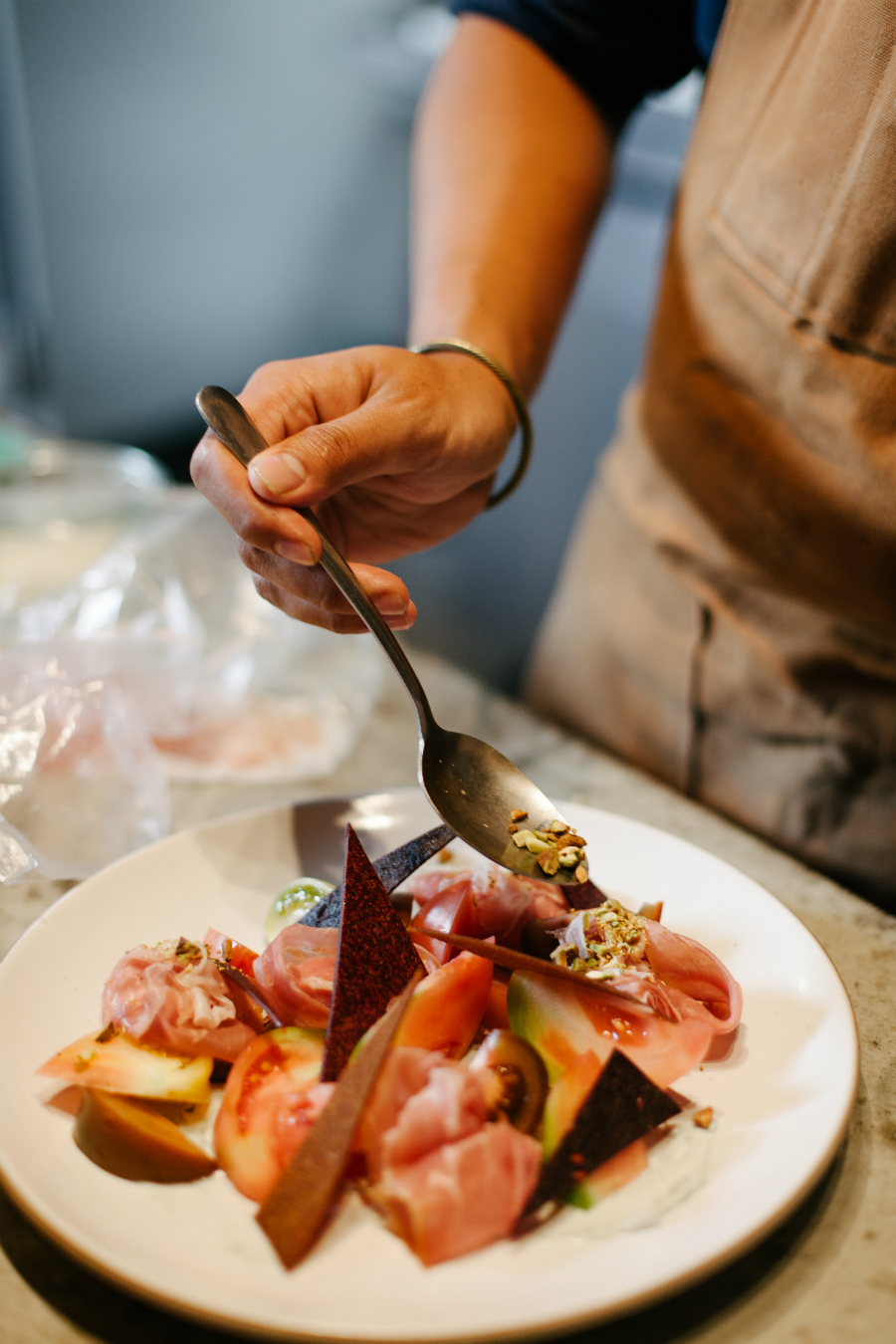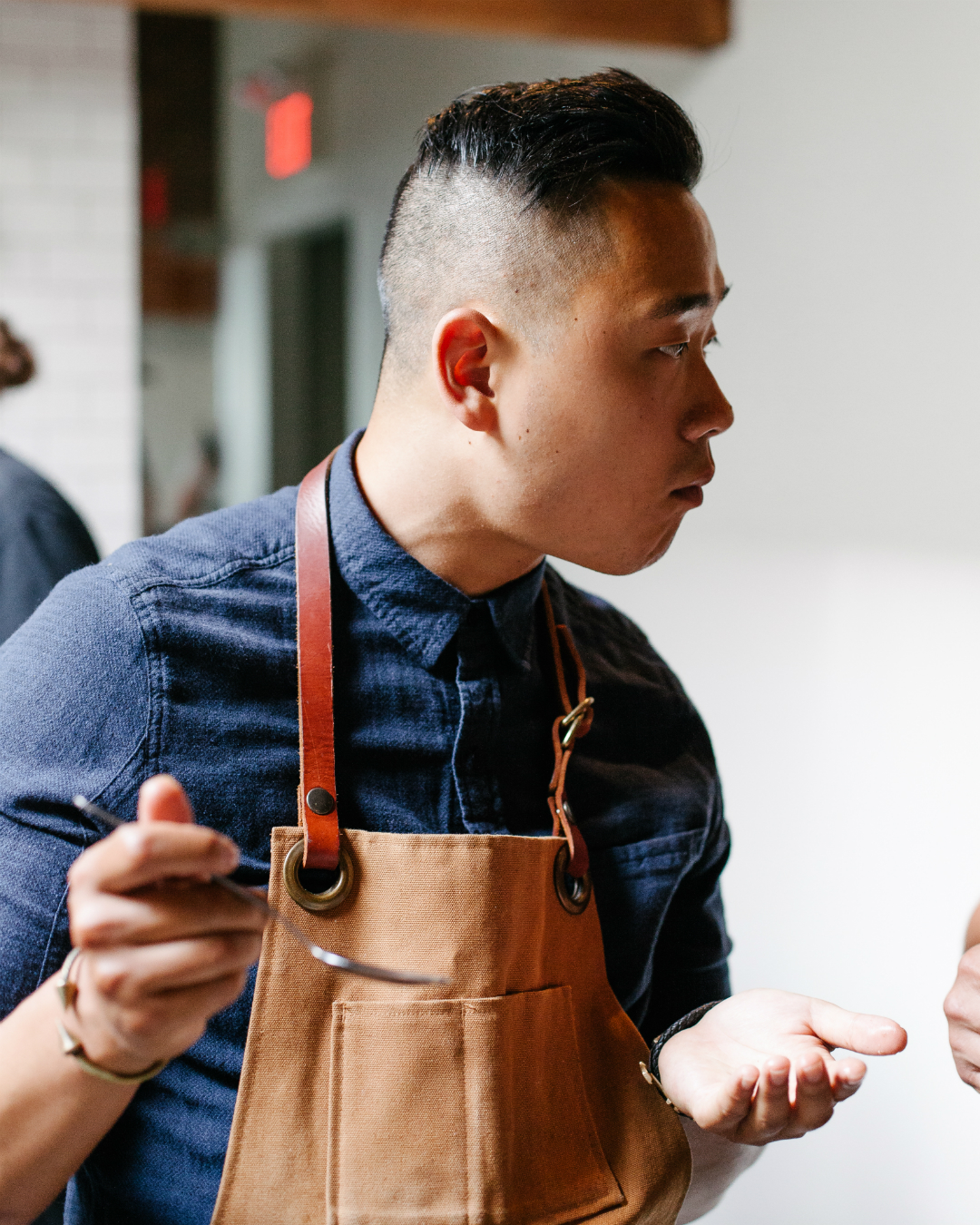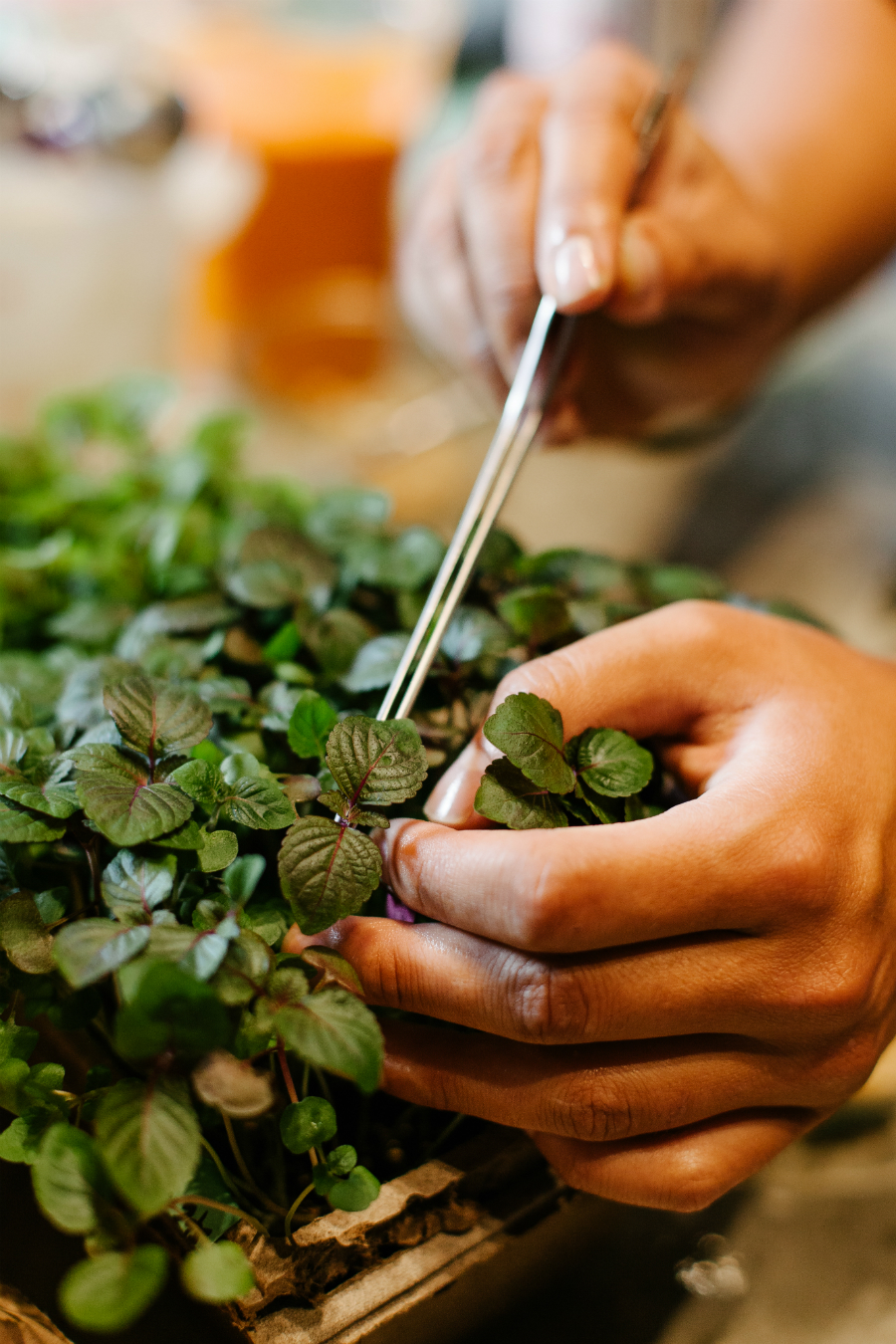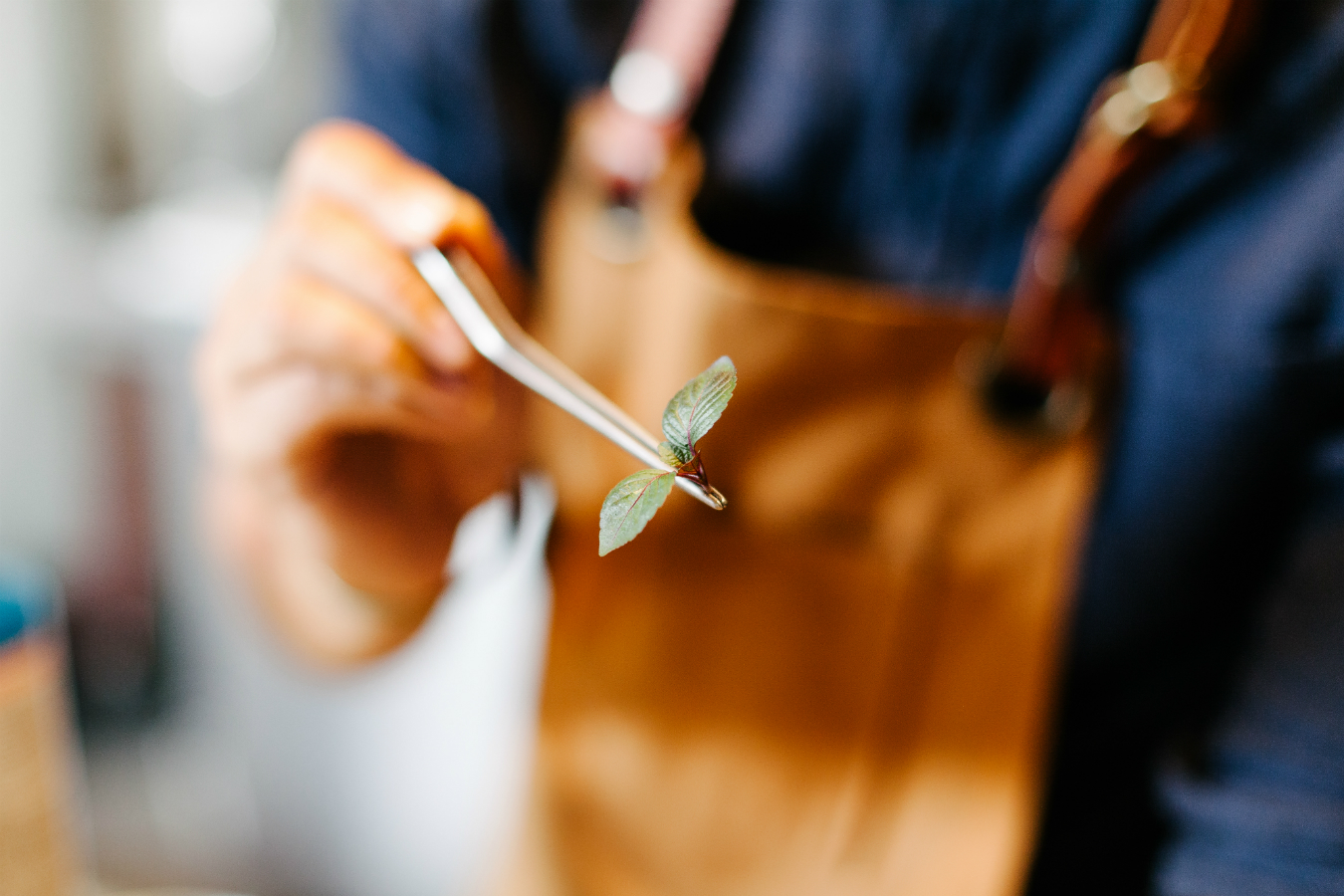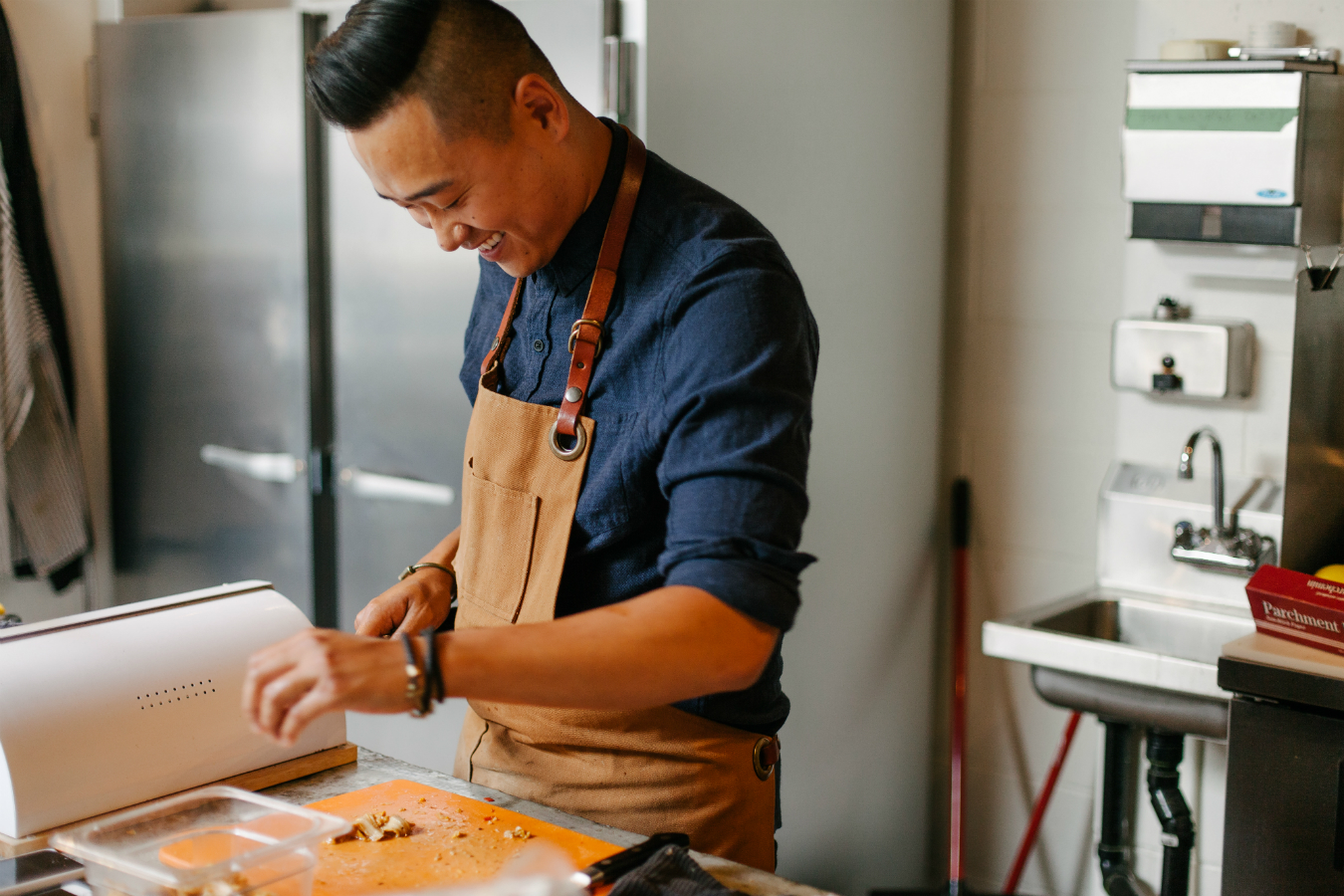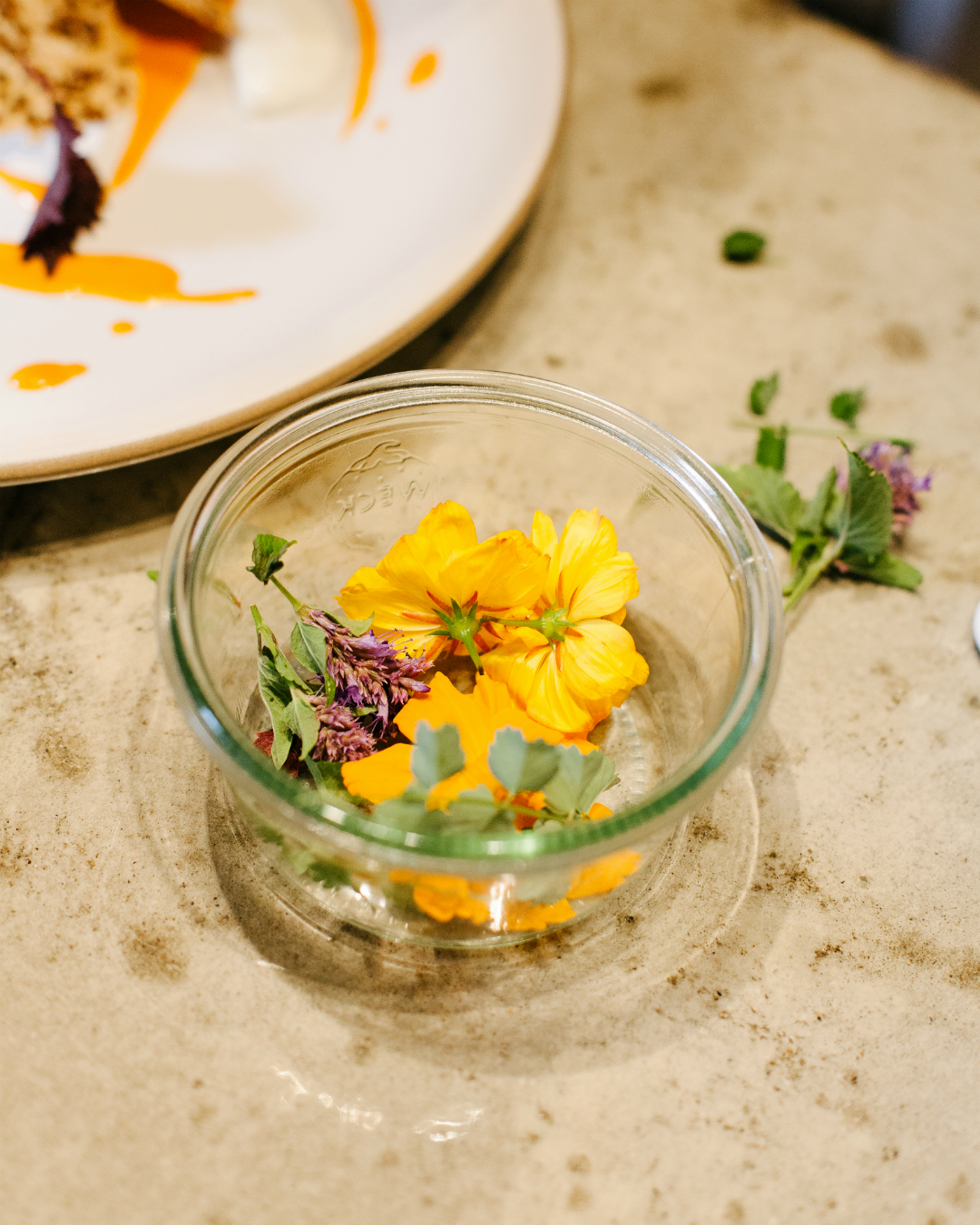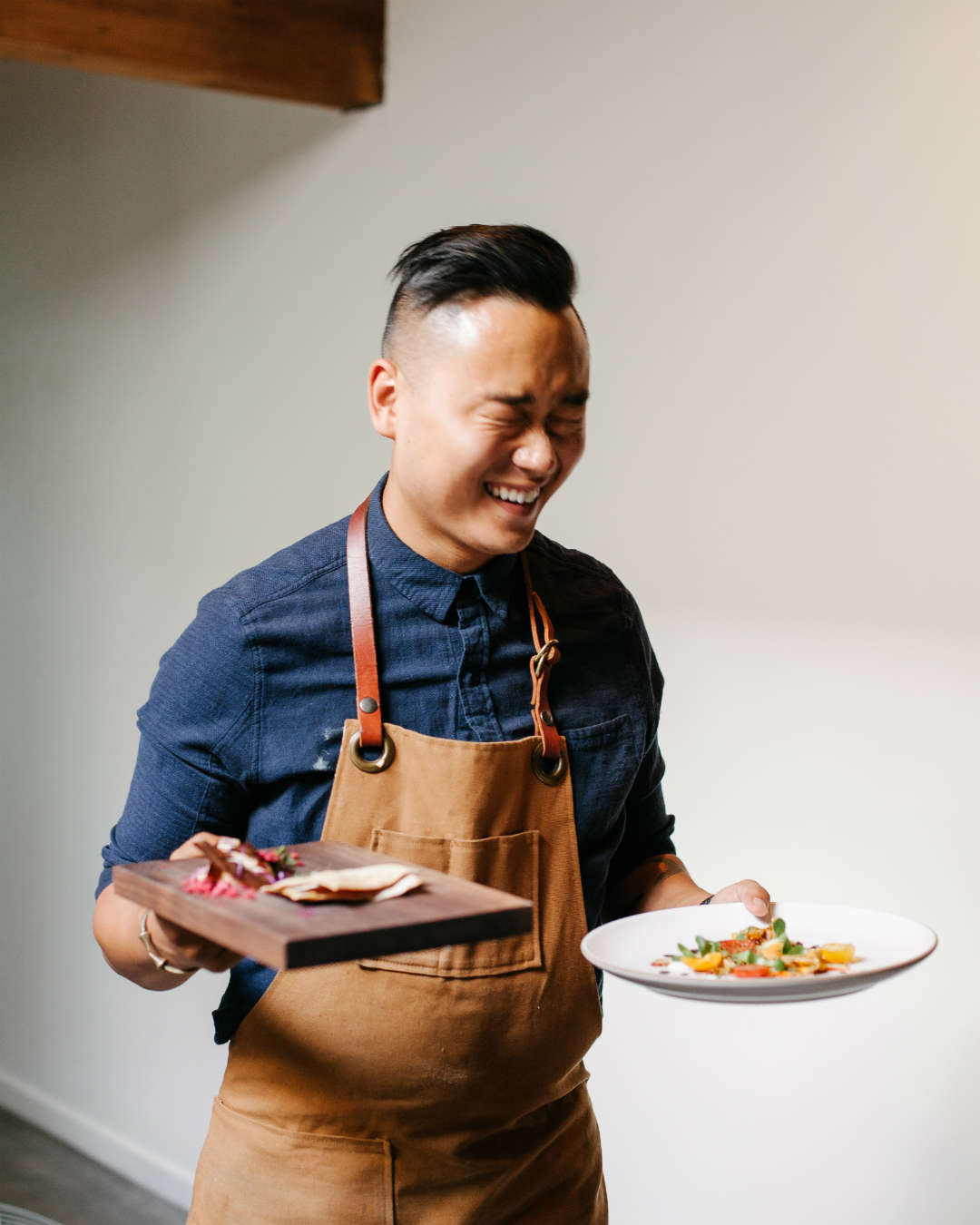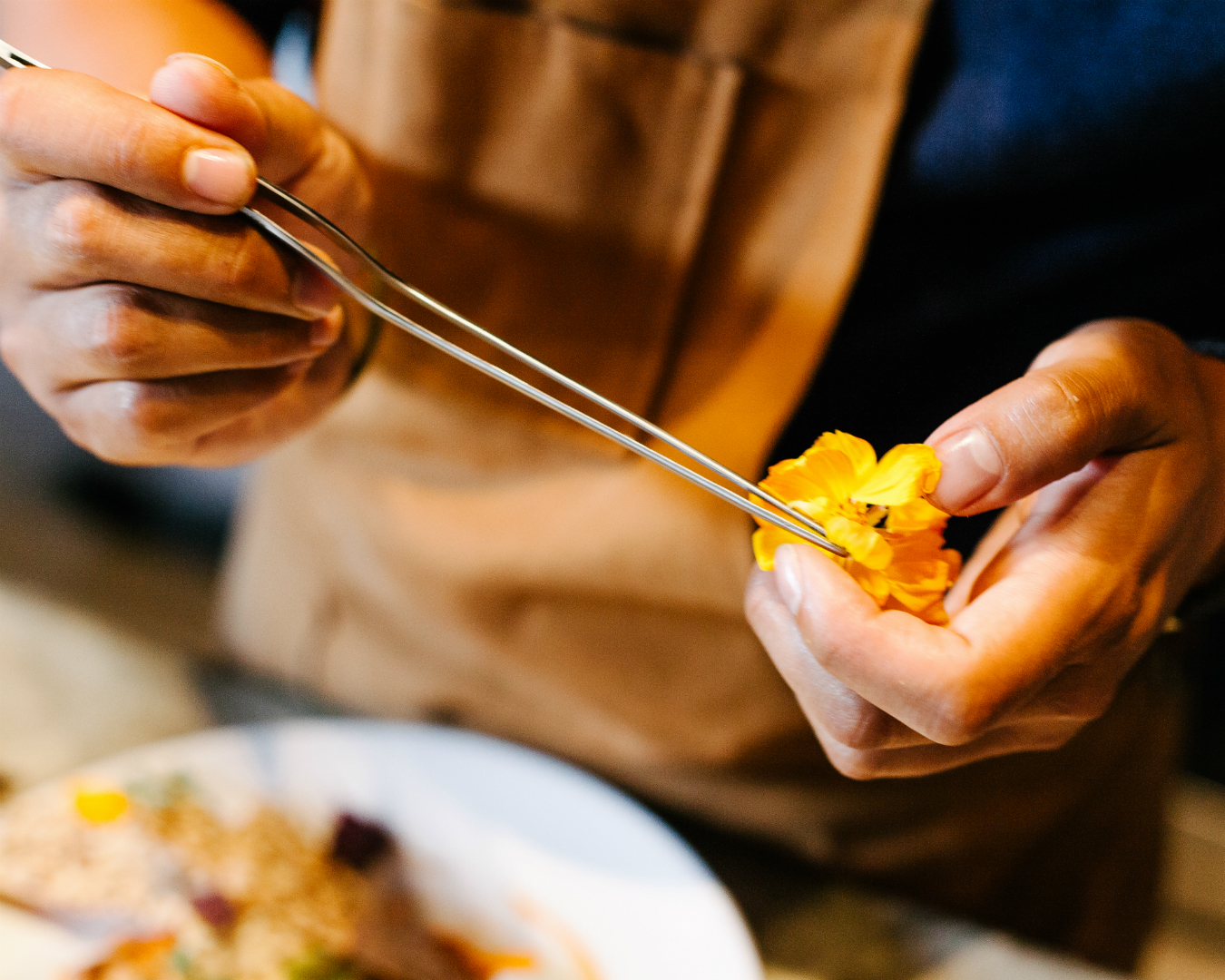Food is fundamental. It’s how we nourish ourselves, of course, but it offers much more than just fuel for our bodies. It’s integral to how we build and cement relationships; it’s central to our economy and how we interact with nature. Pop-up chef Juno Kim approaches cuisine in that comprehensive way, as something that touches every aspect of our lives and sates more than just our appetites.
His culinary journey began with a piece of fish, simple but delicious. An avid diner, one night he decided to try his own hand at cooking. He pulled a recipe from the Blue Water Café Cookbook, a marinated and broiled sablefish. “It came out amazing,” he remembers. Not because of his innate natural talent, but because of a solid, no-nonsense recipe. It demystified the process, showed him he could do it, too. While not every early meal would turn out as smoothly as his sablefish, it gave Kim his initial push into cooking.
Today he sits in the cozily spare front room of 33 Acres Brewery, bustling even at noon on a weekday, where every Monday night he commandeers the brewery’s small kitchen to offer gourmet one-off menus. Before diving into cuisine, Kim took an education that, at first, appears meandering: he studied psychology, economics, and science. While the three topics appear largely unrelated to one another and to cooking, Kim insists they’re all intricately linked. “Food, when you get down to it, is very experiential,” he begins. “But from the fundamentals of a recipe, for example, it’s very scientific: combining things to create something new.” Preparing a meal can involve a dozen different scientific processes, from simple concepts such as evaporation and baking, to highly advanced techniques including sublimation and disciplines like molecular gastronomy. It should be anything but clinical, however. Food is profoundly psychological, and every meal offers an experience. Most are mundane, some disastrous, a select few transcendent. A remarkable meal can provide a mnemonic anchor for a powerful moment in our lives: the time and place, the mood, the company. A good chef, Kim says, should evoke that experience with every dish—solidify it into an indelible memory. When it comes to the realities of cooking for groups of people, and the task of how to assemble a fine meal, economics become essential. “It teaches you how to see things on different scales,” Kim says. “You see it on a micro level, and on a macro level, and then you combine it to make sense of the world.”
The spontaneity and temporary nature of a pop-up makes it memorable: this particular meal will never happen in exactly the same way again. The narrow window of certain ingredients adds to that temporary nature. Much of Kim’s fare is locally sourced, largely for freshness, and also to support the community. “I’d rather go to someone who is providing for a family in Vancouver than some chain,” he says. Those vendors then spend that money back into the community in a positive cycle that benefits everyone. Kim gives back to the community directly, as well, donating 10 per cent of his profits to organizations working in the Downtown Eastside. Social entrepreneurship, he says, means creating companies that can make both a difference and a profit: “It inspired me to create change in a way that you’re still doing something you love.”
Kim started doing pop-ups because he lacked the resume for a restaurant job. It was a wise choice; the fledgling chef took the time to master his craft, and has now been approached more than once to open his own place. While he hasn’t ruled that option out in the indefinite future, he says now is not the time. “I feel like I’m in a research and development phase in my life,” he explains. For now he’d rather ripen his talent, travel and experience foreign cuisines, and foster a community of chefs in his hometown.
Vancouver’s culinary community is young but thriving, and Kim hopes to bind it closely together. Toward that end, every month he invites a Vancouver chef to collaborate on a menu for a special edition of his 33 Acres night. The first was Jefferson Alvarez, who has cooked internationally and now calls Vancouver home. Kim hopes to learn from those he admires, forge connections in the city’s culinary space, and use the large social media following he’s earned to bring up other local chefs with him. His goal, he says, is to “create as a community rather than just a kitchen team.”
Photos by Grady Mitchell.

